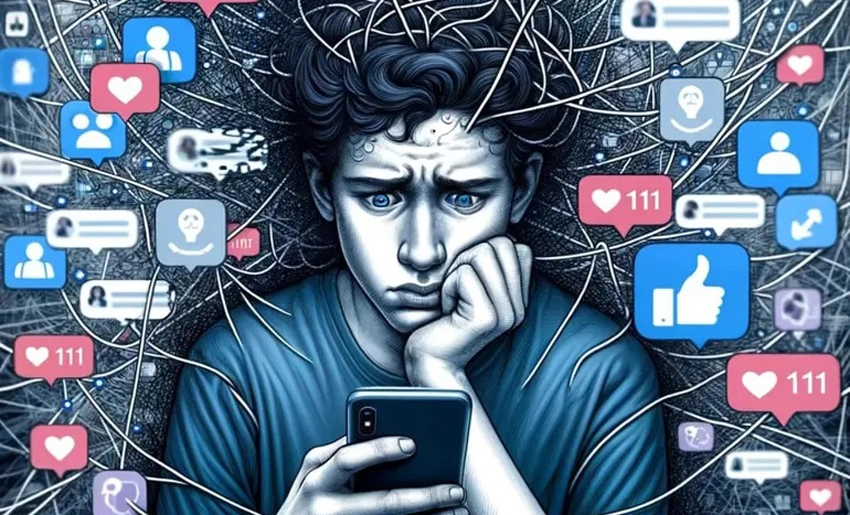In the last decade, social media has emerged as an integral phenomenon in human communication. Shaping the way we interact, share information, and build communities.
Platforms like Facebook, Twitter, Instagram, and TikTok have transformed our reality. Becoming essential tools in the daily lives of millions of people around the world. However, this rise has also brought with it a series of risks that must be considered.
One of the main contributions of social media is the democratization of information. In an environment where news can spread at the speed of light, social media allows anyone with internet access to become a content broadcaster.
This has facilitated the inclusion of marginalized voices and provided a space for the visibility of social movements. Thanks to social media, society can be better informed on crucial issues and actively participate in public debate.
Furthermore, they serve as platforms for connection. In an increasingly globalized world, these tools allow people to connect regardless of geographical distance. Families separated by borders, friends living on different continents, and communities seeking support can find a connection in the vast digital universe.
This not only strengthens personal relationships but also fosters the creation of professional and collaborative networks that transcend physical limitations.
However, these benefits are not without risks. One of the most worrying aspects is misinformation. The speed with which news spreads can lead to the spread of false or distorted information. This phenomenon has had devastating consequences, from electoral manipulation to the spread of conspiracy theories that affect public health. As occurred during the COVID-19 pandemic with misinformation about vaccines.
Another significant risk is the impact on mental health. Several studies have pointed to a link between excessive use of social media and problems such as anxiety, depression, and low self-esteem.
Constant comparison with the seemingly perfect lives of others can lead to dissatisfaction and psychological distress in users. Furthermore, cyberbullying and online harassment are realities that affect many people. Especially young people, creating a hostile environment that can be devastating.
Privacy is another area of concern. With the rise of social media, the exposure of personal data has become commonplace. Privacy policies are often complex and difficult to understand. Leading users to give up their information without fully understanding the implications. Scandals involving data breaches have highlighted users’ vulnerability to the misuse of their personal information.
Undoubtedly, social media plays a dual role in today’s society, presenting both valuable opportunities and considerable risks. To maximize their benefits and minimize their dangers. It is essential to promote responsible and critical use of these platforms.
Educating the public about the importance of accurate information, privacy protection, and mental health in the digital realm. Only in this way can we ensure that they remain a powerful and positive resource in our daily lives.
With information from Artificial Intelligence (AI)
- Installation of Photovoltaic Systems in Rural Communities in Holguin - 19 de January de 2026
- 39th City Salon Opens in Holguin - 19 de January de 2026
- Habanos Festival Among Cuba’s Most Important Tourism Events - 19 de January de 2026

